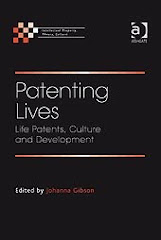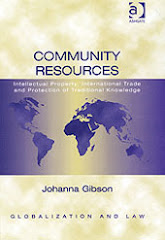In the current climate of recessions and dwindling sales figures, agricultural companies are enjoying a bumper crop.
According to yesterday's Financial Times, Monsanto is the top seller of corn seeds in US and Brazil, where there is huge demand for Roundup-Ready soybean in particular. The corollary of this is that there was a 25% increase in the volume of herbicide in Brazil last quarter. According to the FT, "High food prices are inspiring some farmers to plant extra acreage and drench valuable plants in even more Roundup than usual to avoid crop losses.
Concerns, from both farmers and from consumers, over the risks of contamination are well-known. Indeed, these risks are part of the background to Europe's stance on GM, the subject of a complaint to the WTO by the US, Canada and Argentina.
One problem for farmers is that classical patent protection of GM seeds can lead to costly infringement proceedings, either through drift or through the usual practices of saving and re-using seed. In other words, the business models of patented seed industries are contrary to established farming practices, as the recent case of Homan McFarling v Monsanto Co shows. On the question of saving seed, McFarling's lawyers argued that patent law does not allow Monsanto to control the natural products (future seeds) from the seeds legitimately purchased and planted by McFarling. But the Supreme Court denied the petition for writ of certiorari and let stand the lower court ruling that second-generation seeds were copies, the saving of which amounted to unlicensed use of the patented invention.
The intrusion of multinational corporations upon local farming practices and communities was the subject of a 25th anniversary Pesticide Action Network (PAN) meeting in Penang, Malaysia in December. At the meeting, food security campaigners raised concerns over the concentration of sales within a small number of MNCs, including Monsanto.
Anil Netto reports that vertical integration, where the corporatisation and propertisation of agriculture dominates all stages in the food production cycle: "from the development of proprietary strains of DN and the sales of seeds to farmers right down to the distribution and retail sales of food products in supermarkets and hypermarkets." Monsanto recently purchased Agroeste Sementes, a Brazilian corn seed company.
Javier Souza Casadinho, Centre for Studies on Appropriate Technologies in Argentina, has been raised concerns that such activity leads to a concentration of market control in those MNCs: "The transnational corporations are buying up companies that have the potential to create added value ... [and] entering into contracts with food producers that will determine what is produced, how it is produced, for whom it is produced and at what price and quality."
In the same article, Antonio A Tujan Jr, International Director of the Ibon Foundation Inc, describes vertical integration as turning the market into a sellers' market, compromising the choice for consumers. This is very similar to the concerns raised in the GM debate in Europe, where the risk of contamination is conceptualised as a serious risk to the conditions for consumer choice of organic, conventional or GM products.
What is at stake is not only the limits of the product but also the limits of the markets that preserve consumer choice. And in technologies in living organisms, those limits are sometimes difficult to define.
Thursday, January 17, 2008
Monsanto's Blooms and Booms
Labels:
Agriculture,
Consumers,
GM Agriculture,
Patents - General,
Patents - US
Subscribe to:
Post Comments (Atom)



No comments:
Post a Comment